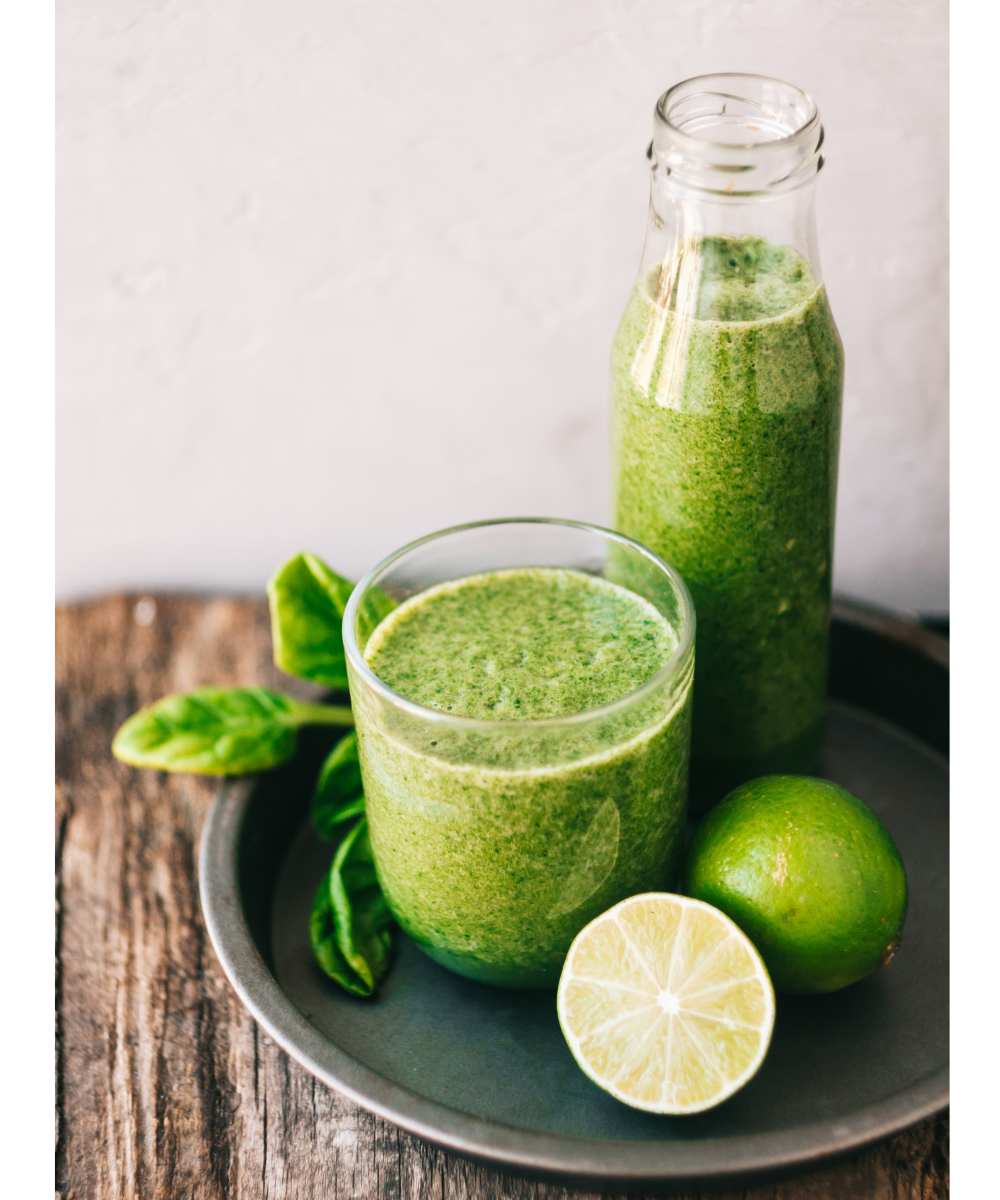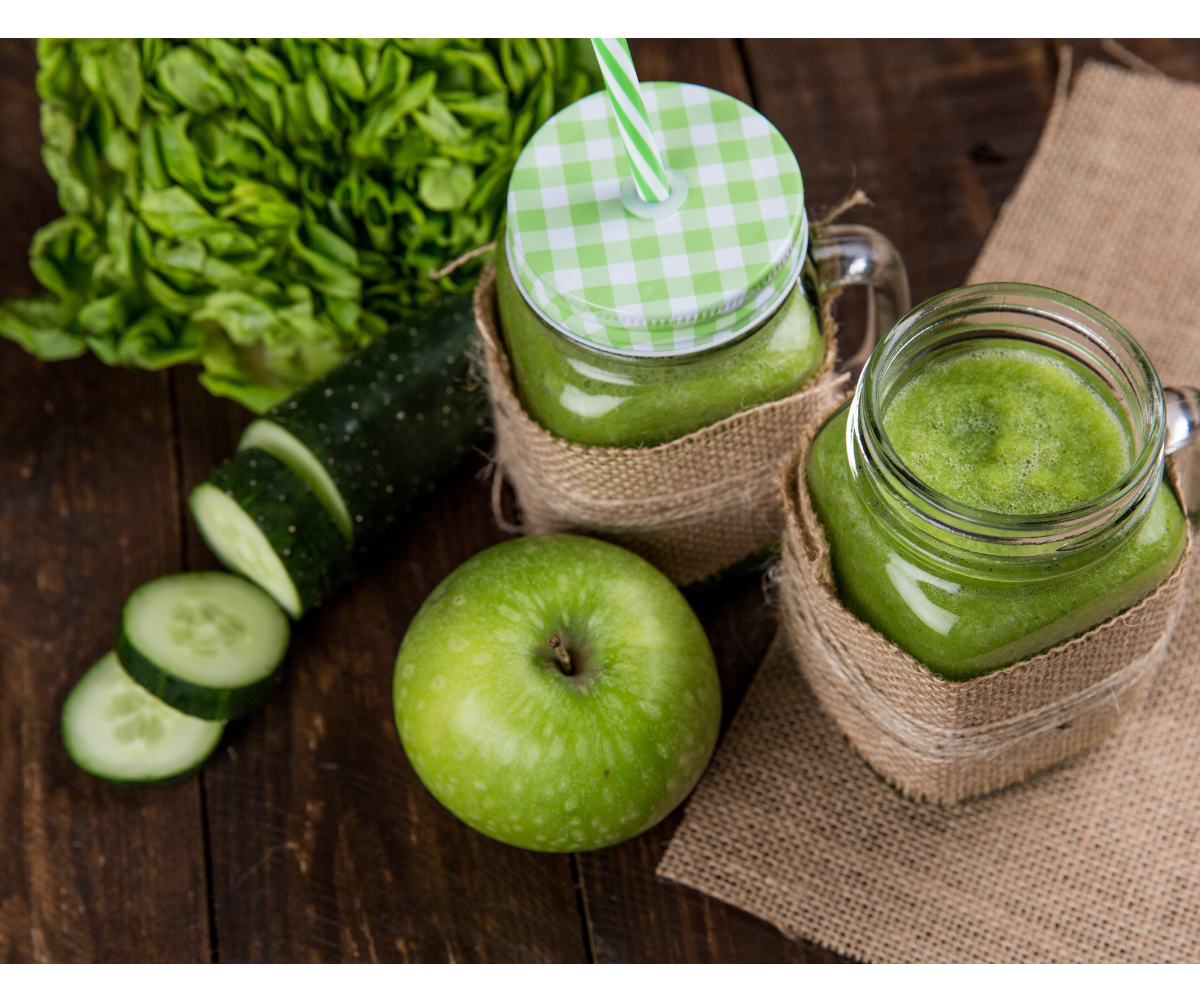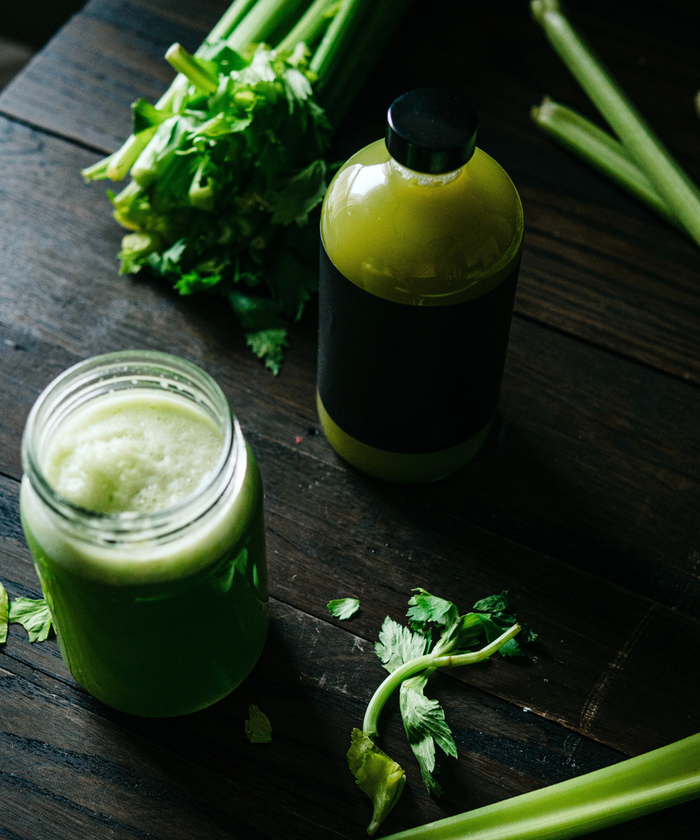In recent years, celery juice has taken the health and wellness world by storm, with countless stories and testimonials claiming significant improvements in overall health. But is celery juice really a miracle beverage for your liver? In this blog post, we’ll dive deep into the potential benefits of celery juice, exploring the science behind the hype and sharing personal experience of those who have embraced this green elixir. Let's dive into the question, "is celery juice good for your liver?” Could juicing be the key to unlocking better liver health and overall well-being?
Key Takeaways
- Celery juice may support liver health due to its anti-inflammatory properties, abundance of minerals and essential nutrients.
- Studies suggest celery juice has antioxidant, lipid-lowering, and anti-inflammatory effects that can aid in the prevention of liver diseases.
- Incorporating celery juice into your diet should be done gradually while also combining it with other nutrient dense foods for maximum benefits.
Celery Juice and Liver Health: The Connection

The connection between celery juice and liver health is rooted in the idea that consuming 16 ounces of fresh celery juice on an empty stomach every morning can enhance liver function and detoxification processes. The liver is a vital organ responsible for eliminating toxins, and celery juice, being rich in antioxidants, vitamins, and minerals, can support liver health and function.
The potential benefits of celery juice are due in part to its anti-inflammatory effects, which can help reduce inflammation in the liver. However, bear in mind that there is limited research on the specific effects of celery juice on liver health, and some of the assertions about its benefits may lack full scientific backing. Nevertheless, many individuals have reported improvements in their liver health after incorporating celery juice into their daily routines.
Nutrients in Celery Juice
Celery juice is abundant in minerals and antioxidants, making it a nutritionally beneficial addition to your diet. These nutrients, such as polyacetylenes and luteolin, have been shown to reduce inflammation in the body, which can be particularly beneficial for liver health. In this context, it’s important to discuss the celery juice benefits that can contribute to overall well-being.
Apart from its anti-inflammatory properties, celery juice also contains essential nutrients like:
- Vitamin K
- Vitamin A
- Potassium
- Fiber
These nutrients can contribute to the prevention of liver disease. Overall, the nutritional benefits of celery juice make it a promising candidate for supporting liver health and function.
Detoxification Support
The concept of celery juice as a potent detoxifier, popularized by the Medical Medium, Anthony William, should be taken with a grain of salt as the body has its own natural detoxification processes, and celery juice alone cannot detoxify the body. However, celery juice can still provide support for liver detoxification by facilitating bile production and toxin elimination.
Incorporating celery juice into your daily routine could offer essential nutrients for liver health, given its rich mineral and antioxidant content. However, bear in mind that its effectiveness can vary from person to person, and it’s ultimately your call to determine if drinking celery juice works for you.
The Science Behind Celery Juice and Liver Health

Scientific research on the benefits of celery juice for liver health is limited, but studies have shown that its anti-inflammatory properties can be beneficial for liver function and overall health. The polyacetylenes and luteolin found in celery juice have been demonstrated to reduce inflammation, which can directly impact liver health.
Anthony William of the Medical Medium has brought celery juice and its potential liver health benefits into the limelight, including its possible impact on blood pressure, but we should scrutinize these claims and weigh them against the existing scientific evidence.
Although more research is needed to fully understand the effects of celery juice on liver health, the existing findings suggest that it may have potential benefits when incorporated into a well-balanced diet.
Anti-inflammatory Effects
The anti-inflammatory properties of celery juice can be attributed to its phytonutrients and essential oils, which have been demonstrated to have a positive impact on reducing liver inflammation and improving liver function. These compounds can help decrease inflammation in the liver and promote overall liver health.
Incorporating celery juice into your diet can have several benefits, including:
- Supporting liver health
- Reducing inflammation in the liver and throughout the body
- Improving overall health and well-being
- Providing relief for inflammatory conditions such as rheumatoid arthritis and immune system imbalances
By adding celery juice to your daily routine, you can take a proactive step towards better health and enjoy a refreshing celery juice break, despite various celery juice claims about celery juice cleanses and the celery juice diet. So, is celery juice healthy? Absolutely. And don’t forget that celery stalks can also be a great addition to your meals. Drink celery juice and experience the benefits for yourself.
Liver Disease Prevention
Celery juice has the potential to assist in the prevention of liver diseases, including fatty liver and cirrhosis, due to its antioxidant and lipid-lowering properties. The antioxidants, vitamins, and minerals found in celery juice can contribute to liver disease prevention and overall liver health.
Scientific research has shown that celery juice can provide several health benefits, including:
- Reducing inflammation
- Enhancing liver function
- Decreasing oxidative stress
- Decreasing levels of bad cholesterol and triglycerides, which can protect the liver from harm.
While more research is needed to fully understand the role of celery juice in liver disease prevention, the existing evidence supports its potential benefits for liver health.
Personal Experiences with Celery Juice and Liver Health

Numerous individuals have reported improvements in their liver health after incorporating celery juice into their daily routines. One person observed that after drinking celery juice daily for five months, they experienced relief from ganglion cysts, painful periods, acne, cysts in breasts, migraines, IBS, and tinnitus. Another woman claimed that celery juice improved her skin, hair, digestion, gut health, and reduced anxiety.
Despite compelling personal testimonies about celery juice, don’t forget that individual results can differ significantly. Keep an open mind when reading these testimonials and consider trying celery juice to see if it benefits your liver health and overall wellness.
Potential Risks and Side Effects of Drinking Celery Juice

Although celery juice is generally considered safe for consumption, there are some potential risks and side effects to be aware of. For individuals with delicate digestive systems, such as those with irritable bowel syndrome (IBS), celery juice may cause digestive discomfort.
Additionally, celery juice may interact with certain medications, and its high sodium content could be a concern for individuals with specific health conditions. It is essential to consult with a healthcare professional before incorporating celery juice into your diet, especially if you are taking medications or have any existing health concerns.
How to Incorporate Celery Juice into Your Diet

If you’re interested in trying celery juice for yourself, there are several practical tips and recommendations for incorporating it into your daily routine. To begin, try blending celery juice with cucumber juice for a few days to allow your body to acclimate to the new beverage. Gradually increase the amount of celery juice until you’re consuming 16 ounces each morning on an empty stomach.
To maximize the potential benefits of celery juice, consider combining it with other healing foods and beverages, such as fruits and vegetables, or herbal teas like dandelion root tea. By incorporating celery juice alongside other nutrient-dense foods, you can further support liver health and overall wellness.
Choosing Organic Celery

When incorporating celery juice into your diet, it’s crucial to choose organic celery to avoid pesticide exposure and maximize nutritional benefits. Organic celery is free of pesticides and typically contains higher levels of nutrients compared to non-organic celery.
By selecting organic celery, you can ensure that your celery juice is free of toxins that could actually harm your liver. Additionally, choosing organic produce can have broader environmental and health benefits, making it a wise choice for both your liver health and overall well-being.
Drinking Celery Juice on an Empty Stomach

Consuming celery juice first thing in the morning on an empty stomach is believed to yield the best results for liver health. Drinking celery juice on an empty stomach can help increase hydrochloric acid levels in the stomach, which aids in digestion and overall gut health.
By incorporating celery juice into your morning routine, you can start your day with a nutrient-dense beverage that supports liver health and overall well-being. Remember to consult with a healthcare professional before making any significant dietary changes, especially if you have existing health concerns.
Combining Celery Juice with Other Healing Foods
To further enhance the potential benefits of celery juice for liver health, consider combining it with other nutrient-dense foods and beverages. Fruits and vegetables, such as apples, carrots, and beets, are nutritionally beneficial and can be consumed alongside celery juice to support liver health and overall wellness.
Herbal teas, such as dandelion root tea, can also be consumed to further promote liver health and combat toxic liver heat. By incorporating a variety of healing foods and beverages into your diet, you can create a well-rounded approach to supporting liver health and overall well-being.
Summary
In conclusion, while there is limited scientific research on the specific effects of celery juice on liver health, the available evidence, combined with numerous personal experiences, suggests that it may have potential benefits when incorporated into a well-balanced diet. The anti-inflammatory properties of celery juice, along with its detoxification support, make it a promising candidate for improving liver health and overall well-being.
However, it’s essential to consider potential risks and side effects, consult with a healthcare professional before making any dietary changes, and remember that individual results may vary. Ultimately, the decision to incorporate celery juice into your daily routine is a personal one, and by combining it with other healing foods and a balanced diet, you can create a well-rounded approach to supporting liver health and overall wellness.
Thanks for reading! If you have unanswered questions, there are a few common questions answered below.
Here's to your health!
Frequently Asked Questions
Will celery juice cleanse my liver?
Celery juice helps improve liver function by increasing the production of enzymes, reducing fat build up and flushing out toxins.
However, there is no scientific proof that it is more effective than other types of vegetables for this purpose.
What are some potential benefits of incorporating celery juice into my diet?
Incorporating celery juice into your diet may provide essential nutrients, support liver health, and reduce inflammation, all of which could have positive benefits for your health.
How much celery juice should I drink each day for optimal liver health benefits?
For optimal liver health benefits, it is recommended to drink 16 ounces of celery juice each morning on an empty stomach.
For individuals with chronic diseases, this amount may be increased to 24–32 ounces.
Are there any potential risks or side effects of drinking celery juice?
Consuming celery juice may cause interactions with certain medications, high sodium content, and digestive discomfort in those with sensitive digestive systems, so caution should be exercised.
It is always recommended to check with your doctor before starting a new eating regimen. This is especially true if you already have diagnosed underlying health conditions.

